#critical disability studies
Text
In my own life, I often feel a push-pull struggle between hope and shame. One night, a partner and I were in bed. As we were kissing I had to ask them to move my head so I could kiss them better. I know there was no reason other than ingrained shame to feel bad about my request. In any other context I have no problem asking for help moving. However, in that instant I felt such loneliness and sadness. The person I was with simply placed their hand on the side of my face and turned my head. They left their hand on my cheek and we continued kissing. In this wonderful moment of connection, I placed my hand on theirs and felt the push of hope. I felt the potential that lies in recognizing sites of shame, such as vulnerability, dependency, sex, and being an "out" disruptive body, as sites of resistance.
Loree Erickson, Revealing Femmegimp: A sex-positive reflection on sites of shame as sides of resistance for people with disabilitites. [x]
924 notes
·
View notes
Text
Debility is thus a crucial complication of the neoliberal transit of disability rights. Debility addresses injury and bodily exclusion that are endemic rather than epidemic or exceptional, and reflects a need for rethinking overarching structures of working, schooling, and living rather than relying on rights frames to provide accommodationist solutions. Challenging liberal disability rights frames, debility not only elucidates what is left out of disability imaginaries and rights politics; it also illuminates the constitutive absences necessary for capacitating discourses of disability empowerment, pride, visibility, and inclusion to take shape. Thus, I argue, disability and debility are not at odds with each other. Rather, they are necessary supplements in an economy of injury that claims and promotes disability empowerment at the same time that it maintains the precarity of certain bodies and populations precisely through making them available for maiming.
In a context whereby four-fifths of the world’s people with disabilities are located in what was once hailed as the “global south,” liberal interventions are invariably infused with certitude that disability should be reclaimed as a valuable difference— the difference of the Other— through rights, visibility, and empowerment discourses— rather than addressing how much debilitation is caused by global injustice and the war machines of colonialism, occupation, and U.S. imperialism. Assemblages of disability, capacity, and debility are elements of the biopolitical control of populations that foreground risk, prognosis, life chances, settler colonialism, war impairment, and capitalist exploitation. My analysis centralizes disability rights as a capacitating frame that recognizes some disabilities at the expense of other disabilities that do not fit the respectability and empowerment models of disability progress— what David Mitchell and Sharon Snyder term the “biopolitics of disability.” But the normalization of disability as an empowered status purportedly recognized by the state is not contradicted by, but rather is produced through, the creation and sustaining of debilitation on a mass scale. Debilitation is not a by-product of the operation of biopolitics but an intended result, functioning both as a disruption of the non- disabled/disabled binary—as an in-between space—and as a supplement to disability, that which shadows and often overlaps with disability. I therefore do not offer debility as an identity; it is instead a form of massification. My alternative conceptualization of the biopolitics of debilitation not only refers to the remaindering of what the liberal inclusion of disability fails to fully embrace, but also points to the forms of violent debilitation of those whose inevitable injuring is assumed by racial capitalism. I therefore seek to connect disability, usually routed through a conceptual frame of identification, and debilitation, a practice of rendering populations available for statistically likely injury.
Jasbir Puar, from the preface to The Right to Maim: Debility, Capacity, Disability (2017) [The link takes you to the press site where you can purchase the book, but it will also allow you to access the introduction as a PDF.]
#Jasbir Puar#readings#critical disability studies#disability studies#capitalism#imperialism#settler colonialism#debility#neoliberalism#this is very difficult to read but I will post excerpts as I understand them#sorry had to repost because of accidental deletion
9 notes
·
View notes
Text
As Barbara Altman emphasizes in her study of definitions, models and classifications, disability is not a stable identity. Rather, it is a “complicated, multidimensional concept.” For the purposes of scholarly research, the imperative to define disability as an “either/or” status is not definitive. This is important in the context of Nazi euthanasia, because disability was far from a stable concept for the Nazis. Instead, disability was located in a nebulous space of the socially and biologically undesirable. Those with socially undesirable traits, such as perceived criminality (the Asozials), were understood to be biologically compromised in a way that implicitly embraces a disability framework.
[…]
In a genocide, victims can have multiple identities that often overlap and blur, related to their socio-economic or ethnic status. A victim can be a member of more than one minority group. Genocide studies sub-categorizes instances of genocide according to the particular dynamic at work.
[…]
Working from a perspective that embraces disability as socially constructed, disability in Nazi Germany can be understood as manifested within German racism in a uniquely biomedical construction, influenced by a twisted ethics that rationalized human disposability.
— Jill Mitchell Nielsen, “Ballast Existences”: the Disabled, Jews and Nazi Genocide, 2012, Chapter 1: Theory and Methodology, 1.1 Integrating Disability Studies and Genocide Studies.
Emphasis added (bolding) is my own.
#Ballast existences#Ballast Existences: the Disabled#Jews and Nazi genocide#Jill Mitchell Nielsen#Ballast Existences: the Disabled Jews and Nazi genocide#Ableism#Disability#Holocaust#Shoah#Racism#Antisemitism#Genocide#Nazism#Genocide studies#Critical disability studies
0 notes
Text
My Book Turns 1!
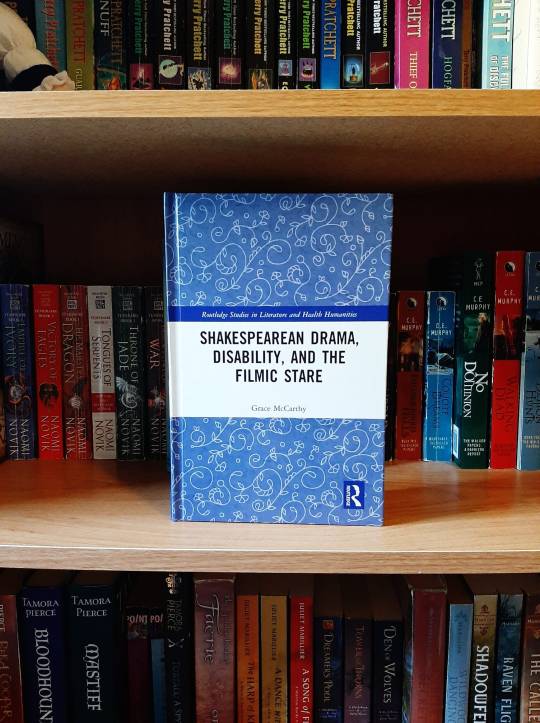
At the end of Disability Pride Month 2022, I am pleased to announce that my book is turning one year old! She is a peice of my heart made paper.
#shakespeare#literary criticism#literary analysis#film studies#shakespeare film#disability studies#critical disability studies
14 notes
·
View notes
Text

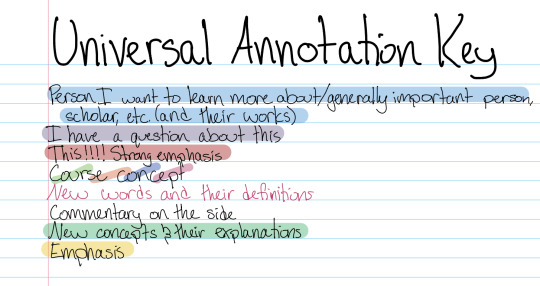

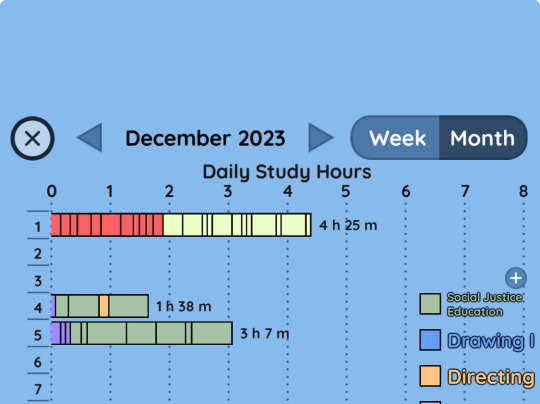
7 Days of Productivity, Days 1-3
Well, I had certainly hoped to be able to upload daily instead of all on one day. Alas, I ran out of time and energy after doing work all day to post any updates. But here we are! I'm honestly not super happy with how the last three days have gone, but I'm hoping for tomorrow and Friday to be better.
Monday Dec 4 - Day 1: As you can see by my Study Bunny daily study hours, I didn't get much work time in this day. I had a really hard time getting up and moving in the morning and ended up sleeping half of the day. My body definitely needed it, but it's not ideal when you have deadlines! I did have a productive rehearsal for my scene for my Directing class though. We didn't get to everything I had planned so I'll have to prioritize the last chunk during my rehearsal tomorrow. After rehearsal, I went to the library and started my final project for my Social Justice Education class. My topic for the project was the concept of Crip Time, and I had a little bit too much fun researching it! I am so passionate about the field of Disability Studies so I kept getting distracted by all the articles I was finding, even if they weren't actually useful to my project 😝 I guess that's a good problem to have, but again - deadlines!
Tuesday Dec 5 - Day 2: Unfortunately another day where I didn't spend as much time as planned on working. I had planned to spend the entire day at the library, but due to a miscommunication my anxiety got really bad right before my partner dropped me off at campus, and it took me probably three hours to be calm enough to get any work done. I used the Study Bunny app when I first got to the library, but after a few hours it just didn't make sense to me to bother using it since I was just going to work continuously. Next time I'll use the stopwatch function instead of the countdown. While I was at the library I created a universal annotation key for myself. I like to color-code my highlighting but it always slows me down to take the time to set up my color key, so I thought I would just create one that would be applicable to everything that I read, not just course readings. After I got home and showered, I was ready to do more work, but it seemed my cat had other ideas! I still managed to get another couple of hours of progress on my project though.
Wednesday Dec 6 - Day 3: I finished my project on Crip Time and thus finished my Social Justice Education class! I'm having a hard time being happy about it though. I spent 5 straight hours finishing the project, and didn't have it completely finished until just before I presented it to the class - and I was the last to go. I am happy with the final product, and I feel like I learned a lot from my work on it, but I'm pretty unhappy with myself for my utter lack of time management with the project. Oh well ¯\_(ツ)_/¯ there's always next semester. And hey, I don't have to worry about it anymore! That's one class down, three to go.
I also got my grades back for my two Incomplete classes. I got a B in both classes, which is honestly better than I was expecting. I didn't finish all of the work (and didn't finish most of the work for one of them) for them, so I thought I was going to have a C at best. But the B is a huge relief! And like with Social Justice Ed, it's done and I finally don't have to worry about it anymore.
Up Next:
[] Make a plan for how I'm going to complete all the work for my Directing class
[] Prepare for my rehearsal tomorrow
[] Finish the text analysis for the scene I'm directing
[] Complete my production critique for All's Well That Ends Well
[x] Choose the other two productions that I need to watch and critique
[] Order the gifts for my boyfriend's mom, grandmother, and stepmom for when we visit them all for Christmas. I'm thinking of getting candles for each of them as hostess gifts. We'll be spending 5 days with his mom's side of the family and then 5 days with his dad's - I'm nervous!
Wish me luck for a better and more productive day tomorrow! And I wish you the best of luck for your day and your exams as well. We got this!
🎵: Einaudi: Experience
#getting this out literally right before 11:59 pm on day 3 is extremely fitting#sigh#can't wait for this semester to be over#it's been a mess#studyblr#studyblr challenge#my posts#study bunny#light academia#academia#cat#crip time#critical disability studies#disabled student#disabled creator#research project#final project#study motivation#7 days of productivity#productivity challenge#college student#college studyblr#studyspo#finals week#uni studyblr#college studyspo#student#theatre student#social justice student#disability studies tag
0 notes
Text
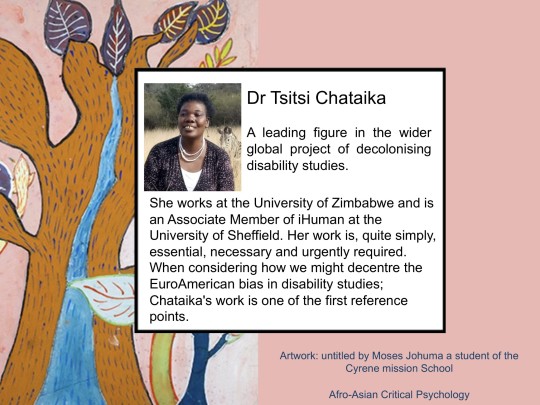
Celebrating the work of Dr Tsitsi Chataika. Her work looks at the intersection of disability studies through gender, religion and policy. Professor Dan Goodley describes her work as 'essential and urgent' in decolonising disability studies.
Follow us on Twitter @AACritPsy
#blackhistorymonth#critical theory#disability studies#Africa#decolonisation#critical disability studies
0 notes
Text
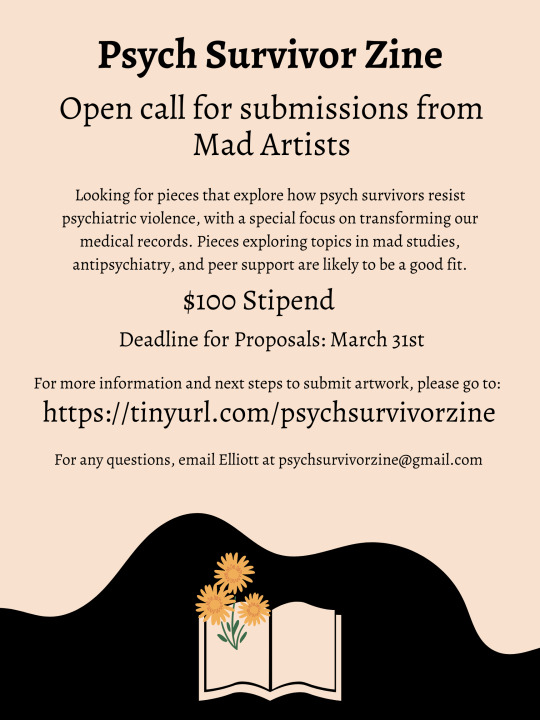
Image description: [ A digital poster with a beige background and a small graphic of a book that has yellow flowers growing out of it. Text says: Psych survivor Zine. Open call for submissions from Mad Artists. Looking for pieces that explore how psych survivors resist psychiatric violence, with a special focus on transforming our medical records. Pieces exploring topics in mad studies, antipsychiatry, and peer support are likely to be a good fit. $100 Stipend. Deadline for proposals: March 31st. For more information and next steps to submit artwork, please go to https://tinyurl.com/psychsurvivorzine. For any questions, email Elliott at [email protected]]
Hello everyone! I am thrilled to announce that I'm searching for collaborators for the first edition of a Psych Survivor zine!! I've been working on this project for a while, and there are several other components that will be rolled out throughout this spring (if you aren't an artist/writer but still want to be involved, keep an eye out on my blog.) This zine is going to be physically published and hosted on a website created specifically for this project.
This zine is open to anyone who identifies as mad/mentally ill/neurodivergent/psych survivor/ex patient, and any form of art is welcome, whether that's poetry, critical essays, digital art, photography, or anything else. Due to funding constraints, I will likely only be selecting 10-13 people to add to this edition. This edition is focused specifically on abolishing and transforming our medical records, and click on the link above to read the full prompt.
Please feel free to email me or message me on tumblr with any further questions, and I'm so excited to hopefully work with some of you on this project!
#antipsychiatry#antipsych#mad studies#neurodivergence#disability studies#peer support#disability#mental illness#mental health#psych abolition#psych critical#psych survivor zine
880 notes
·
View notes
Text
So, the thing with Qiu Qingzhi vs Qiu Shenji is that they *are* different characters in a lot of ways. Qiu Shenji is more explicitly morally complex whilst what we see of Qiu Qingzhi is much lighter grey, all considered. But the root of their sense of morality remains, for the most part, identical.
In both cases, they have people they prioritise as "their" people. And for these people, they would sell the world. In the cdrama, this applies to Li Bing and the former slaves/convicts. In the manhua/donghua, it's the people working beneath him (such as General Lang in her former role).
Qiu Shenji is very much running the numbers game in a way that implicitly devalues the lives of civilians, purely because of the potential that the civilians could themselves be sleeper agents. He's been burnt before by doing the "compassionate" thing and so now would rather his troops get away safe, even at the expense of potential innocents. He even outright says something to this effect in his discussion with Minister Xu. If it's not their blood on the ground, then it's his.
To be quite frank, it's entirely possible that Qiu Qingzhi is off doing similar maths in the background of the cdrama, and it's an adaptational choice not to make that too explicit. But at the same time, Qiu Qingzhi's chosen people are not *necessarily* the same as Qiu Shenji's. And so the people he is willing to sacrifice to achieve his aims and protect those close to him differ accordingly.
The cdrama doesn't overly concern itself with asking questions of morality, being focused on more personal stakes overall, rather than weighing up any lofty ideas of what constitutes "ends justify the means" or the distant idea of a "greater good".
But just looking at the wider framework here. Qiu Shenji and Qiu Qingzhi are both a lot more politically aware than Li Bing and this heavily informs their actions. Li Bing can afford to rally for justice because of the space that's been made for him to do so. Qiu Qingzhi and Qiu Shenji do not have that option.
In Qiu Qingzhi's case, it's because his upbringing as a slave cannot be cast off. (Both he and Lai Zhongzhu have this in common. Where the donghua/manhua go for morality and politics, the cdrama goes more for class commentary. Qiu Qingzhi and Lai Zhongzhu both claw their way up from their birth stations and yet neither can remain there for long. They would never *truly* be accepted, not matter what actions they take to prove their loyalty). He has seen how disposable he and his fellow slaves are considered to be and so knows he cannot put a foot wrong.
In Qiu Shenji's, it's because he knows full well how easily he can be implicated by his former relationship with the Li family. (Something that the actual Li Bing was politically astute enough to pick up on years before any rebellion had taken place) And, honestly, even with his other reasons, I wouldn't be surprised if that also plays somewhat into why he's so overzealous in quashing rebellions. The idea of taking down rebels so viciously that he cannot ever be accused of being one himself.
Both Qiu Qingzhi and Qiu Shenji act strongly in their determination to achieve their aims. They want to shoulder the hard acts because they believe that they *have* to be done, but at the same time, are entirely willing to take on that burden *alone* without demeaning those who feel differently.
For Qiu Shenji, General Lang mentions she couldn't stomach his rebel-quashing tactics and so he made sure to obtain her a position elsewhere. She says he had also done this for others and seems thankful, even as she must know she is still complicit. Qiu Shenji knows how he is seen by the general populace, but thinks it an acceptable sacrifice for maintaining peace.
For Qiu Qingzhi, he made his deal with Yi Zhihua and then locked out Li Bing entirely, despite all their history. He would rather Li Bing hate him but be safe than let him in and put him at risk.
Both Qiu Qingzhi and Qiu Shenji commit to drown themselves in the blood of others so that they can protect "their" people. They made their decisions long ago and remain committed. Even choking, caged in a trap slowly tightening around them, they will not flee.
#tldr; qsj is probably a great case study for philosophy majors. meanwhile qqz is just down really bad.#also I say cdrama goes for class and donghua/manhua more general morality but both are really critical about the expendability of civilians#it's just the cdrama tends to highlight specific groups (slaves/convicts/disabled etc) whereas donghua/manhua is more generalised?#white cat legend#white cat legend spoilers#...I really ought to start separating out my donghua and cdrama tags but I can't help overlapping them in my musings ngl rip#also disclaimer that I've only read eng TL of manhua and am aware there's probably loads untranslated I'm missing on that side#the donghua shuffling some events around probably helps somewhat but can't entirely cover for the parts I simply don't know.
6 notes
·
View notes
Text
this might be controversial but I think some people are taking advantage of the LGBTQ+ community. Company’s like to say that they’re being “inclusive” when they add a gay couple into a show, but I think that if we’re going to be inclusive about LGBTQ+ we should also be inclusive about people with disabilities and different religions. Most companies that produce content have the same excuse “we want these people to feel like they are being seen”. What about the people who don’t get recognition? What about the people who use wheelchairs? Where are the blind people in media? How about Buddhists? It’s amazing that LGBTQ+ is being represented but when other people with problems aren't it feels like our community is being profited off of. We aren’t the only community that has been oppressed by society, but we’re one of the only that is getting recognized. Thank you for coming to my Ted Talk
2 notes
·
View notes
Text
Basically whenever you see something that gives evidence which makes you think "yeah, exactly! I always knew it!" you should look more into it.
This is re: the calorie post I just reblogged, but is also about that post from a year or two ago where people were like:
"LOOK THIS STUDY BLATANTLY SAYS NO DIETING EVER WORKS, YOU CANT LOSE WEIGHT FROM CHANGES IN FOOD INTAKE"
and the conclusion of the study was like "after studying these 8 fad diets we concludesd that the rate of weight loss evens out after 18 months"
so people were literally just straight up lying, and everyone reblogging it thought "this person says this study proves what I already think is true (that dieting can't work), so it must be true"
#like. a) dieting =/= fad diets.#b) yeah actually. dieting does work. for many people. like there are quite many people who lost weight due to diet and exercise.#c) the fact that dieting works doesnt mean that fatphobia is okay or something. both things can be true.#and like... links between things are very often WAY more complicated than it seems. theres always like 5 more factors#like to someone racist if they hear “this study shows schools in black-dominated areas achieve lower test scores and have fewer students#that receive academic scholarships“ theyre gonna be like ”YEAH SEE? BLACK PPL ARE STUPID“#when really a) test scores dont measure intelligence b) black dominated areas tend to be low income areas which have i) overworked teachers#ii) kids have life issues that impact their schoolwork. eg lack of food and housing security or violence.#iii) lack of things like free tutoring after school programs#iiii) lack of resources for students with disabilities (which are common in low income areas for MORE reasons)#c) scholarship committees that arent specifically devoted to affirmative action are often super racist#like... its not just racists or whoever that make these connections due to bias and lack of critical thinking. everyone does it.#including me and you.
5 notes
·
View notes
Text
controversial psych critical opinion because few psych critical people agree with me on this but I DO believe BPD describes a real...not necessarily disorder but cluster of symptoms that occur from (usually) attachment trauma that very well deserves to be in the dsm because people with that cluster of symptoms need treatment, but I think generalized anxiety and other disorders where it's basically "youre anxious/depressed/reacting this way for no reason and it's because you have a problem and you're crazy and it's your fault" shouldn't materially exist.
like yes, if you fall under the label of generalized anxiety disorder your suffering is real and valid, but realize that your diagnostic label as it exists is BASICALLY "we think you blow your anxieties over things that might be very real to you out of proportion and also you're hysterical and possibly have munchausen's syndrome"
#basically: if a disorder has an explanation that isnt just 'youre blowing shit out of proportion' its fine#if it has an explanation of 'theres no cause only treatment is meds and youre making problems where there arent any'#i think stuff like that should be thrown out#psych critical#antipsych#disability studies tag#mad studies tag#and yeah this is basically based on my experience of being diagnosed with generalized anxiety disorder#going over the symptoms and stuff of it and then realizing 'but my 'generalized anxiety' is me reacting to adhd/possible bpd/ocd stuff'#and then realizing 'hey this is a diagnosis people use to basically tell you you're hysterical and you're making up your very real worries#come to think of it i believe i was diagnosed with generalized anxiety as a child over#1.) actual legitimate realistic fears i blew out of proportion from emotional dysregulation from adhd#(like 'nobody here likes me' literally that was true i had no friends!! the problem wasn't me it was THEM!!)#or 2.) manifestations of my low insight/no insight obsessions#(i.e. the constant fears of the apocalypse was LITERALLY ocd. that was an ocd obsession and i felt i had to 'be good' to prevent it)#(either that or die but people treated me and my suicidal impulses at the time as 'faking it for attention')#(even though my brain and the voices in my head from weird ocd related stuff were telling me 'literally you HAVE to die')
3 notes
·
View notes
Note
hello!!! I've been trying to accept for myself the idea of bodymind and was wondering if you had any recommended reading on the subject? this is worded strangely I'm sorry I'm sleepy. thanks!!!
I do! <3 here are some for free online:
Begin with Margaret Price's classic paper which popularized the bodymind as core to critical disability studies, The Bodymind Problem and the Possibilities of Pain.
AND the paper it cites heavily, Rosemarie Garland-Thompson's Misfits: A Materialist Feminist Disability Concept.
I also wrote pretty recently about this in my essay, The Beholding and Beheld!
There's two modern classics, In Defense of De-Persons and Sick Woman Theory, both by the incomparable Johanna Hedva.
J. Logan Smilges (one of my mentors!)'s amazing article Traumasex: A Queercrip Erotic.
I feel like I'm constantly recommending Mel Baggs's oeuvre....because I am. Here's a good blog post of hirs to start with regarding the bodymind interface.
Some books to look at include:
Eli Clare, Exile & Pride and Brilliant Imperfection: Grappling With Cure.
Leah Lakshmi Piepzna-Samarasinha: Bodymap and Dirty River.
Audre Lorde, The Cancer Journals.
Stacey Waite, Love Poem to Androgyny and The Lake Has No Saint.
Adam Dickinson, Anatomic.
Hope these help get you started!
372 notes
·
View notes
Text
To any Americans out there with a disability. There's a paid position available at the Critical Design Lab for a remote worker. You'd be doing lit reviews, communicating with people, recruiting participants etc. It's for a year and deadline is 27th June.
You DON'T need to be connected to an academic instution to apply. You can be someone who does independent research even (like run a tumblr blog about Disability) and can still apply.
Here's the link if you're interested.
#Disability#Academia#Research#Critical design lab#Disability studies#America specific#Gods but I'd apply in a heartbeat if I could
58 notes
·
View notes
Text
Disability in Nazi Germany was portrayed primarily as a financial concern, and it was fundamentally a question of economic utility that lead to the program of extermination in 1939. However, it was the particular ideology of racial hygiene that provided the basis for the euthanasia program. The ideological justification for euthanasia in Nazi Germany has its roots in the eugenic science of the late nineteenth and early twentieth century.
[…]
These racial hygiene precepts were also at the heart of Nazi anti-Semitism, and anti-Semitic discourse shares commonalities with that surrounding disability in Nazi Germany. Nazi racial hygiene has its origins in the radicalization of a distinctly German eugenics that was intertwined with Völkisch ideals and Aryan mysticism to embody a pseudo-science into which biology emerged as a religious idealization. Under this idealization, the disabled were depicted as a malevolent and costly sickness in the German body politic for which the state was obliged to provide a remedy.
—Jill Mitchell Nielsen, “Ballast Existences”: the Disabled, Jews and Nazi Genocide, 2012, Chapter 2: Ideological and Economic Dimensions of the Construction of Disability in Nazi Germany
Emphasis added (bolding) is my own.
#Ballast existences#Ballast Existences: the Disabled Jews and Nazi genocide#Jill Mitchell Nielsen#Nazism#Genocide#Antisemitism#Shoah#Racism#Holocaust#Disability#Ableism#Eugenics#Critical disability studies#Genocide studies#Racial hygiene
1 note
·
View note
Text
3.2: Thinking About How We Think About Animals with Dr Chloë Taylor
Today’s episode is all about animal ethics—or do we mean critical animal studies? @arielkroon discusses this linguistic nuance and the differences between them (and much, much more!) with Dr Chloë Taylor, professor of women and gender studies at University of Alberta.
Today’s episode is all about animal ethics—or do we mean critical animal studies? Ariel discusses this linguistic nuance and the difference between them (and much, much more!) with Dr Chloë Taylor, professor of women and gender studies at the University of Alberta. Dr Taylor has been involved in a five-year-long project researching the “Intersections of Animality” and is a trained philosopher who works in gender studies, and sees a lot of intersections between the way that we think about and treat animals and the way that we think about and treat minoritized subjects. Come join us for a thought-provoking and highly educational discussion here!
Links
Dr Chloë Taylor’s profile at University of Alberta
Peter Singer and Tom Regan
North American Association for Critical Animal Studies
Where Disability Rights and Animal Rights Meet: A Conversation with Sunaura Taylor
Making Kin: An Interview with Donna Haraway
Auroch de-extinction and rewilding
Connect with Solarpunk Presents Podcast on Twitter, Mastodon, or at our blog.
Connect with Ariel at her blog, on Twitter at @arielletje, and on Mastodon.
Connect with Christina at her blog, on Twitter, and on Mastodon
Support the show on Patreon or make a one-time donation via PayPal.
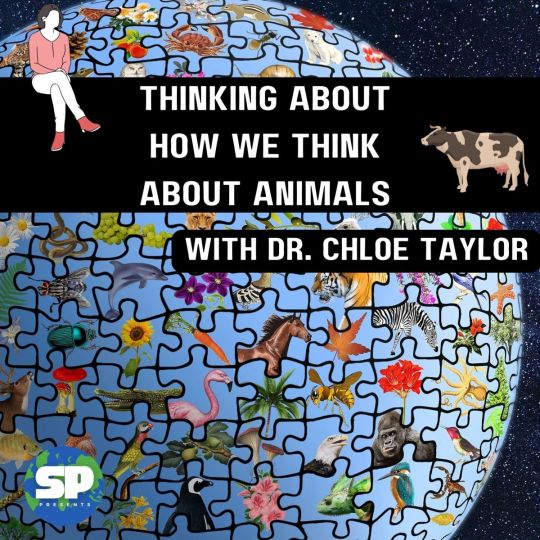
View On WordPress
#animal ethics#animal rights#Chloe Taylor#critical animal studies#definitions of humanity#disability rights#Donna Haraway#hope#Peter Singer#solarpunk#Sunaura Taylor#theory#Tom Regan#University of Alberta#veganism#podcast#episode#podcasting
4 notes
·
View notes
Text
the wife and i went to. gay bookstore today and ohhh my god i was So delighted by it. theres a little cafe area and the books are so cool. i was staring so longingly at a book about queer urban justice essays that they just bought it for me as a late birthday gift . i cannot wait to use this for Evil (my queer studies degree)
#leo composes#GOD I HOPE ITS RELEVANT ISH TO MY CRITICAL EQUITY STUDIES CLASS#either way i’m sooooo excited to read it#theres an essay abt filipino diasporas#and black/queer intersectional disability activism#im going to eat this essay book for breakfast I MIGHT START READING IT NOW#i should work on my bigbang fic but like what if
2 notes
·
View notes